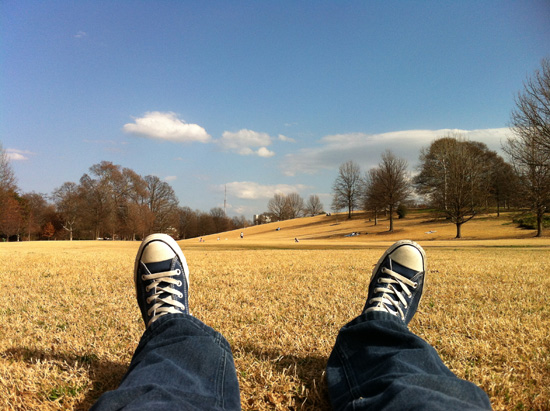September 24, 2018
Mercy Day
Will it be “We’re In the Money”?
UN Secretary General Ban Ki-moon, in his current report on Harmony with Nature asserts that 'it is critical that the post-2015 development agenda is aimed at sustaining nature rather than reducing it to a resource to feed our economic system.' This is a harsh critique of economic growth as the basis of development rather than, as the Secretary General notes, 'supporting the flourishing and the maintenance of an infinitely diverse natural and social life ... and the well-being of present and future generations.'
Zeroing in on one of the worldwide hot topics of the day, he points to hydraulic fracturing as one source of how 'damage to the intrinsic regenerative capacity of nature is impaired not only directly by overexploitation of a particular element of the natural world but also, indirectly, by damage caused to other related natural elements through ecological processes. For example, hydraulic fracking …'
What can be done?
The Secretary General ‘s report suggests a new paradigm (a new song?): harmony with nature.
Will it be 'Blue Skies'?
A new paradigm would mean a new economic model, where we “reorient our economic system to serve the people and the planet better, as recommended by ecological economics.”
Hallmarks of this new paradigm, harmony with nature, include:
 Image: Kenneth Thewissen. Used with permission
Image: Kenneth Thewissen. Used with permission
It’s our song to sing—in harmony
For the Sisters of Mercy and our partners worldwide who acknowledge profoundly the sacredness and our oneness with all of Creation and seek to address our common global concerns of unsustainable development, violations of Mother Earth, human and ecological mining abuses, and denial of the right to water and sanitation, the Secretary General’s report offers lyrics for our song and strength for our harmony as we approach our national and global advocacy work. In his own words:
To promote this new paradigm in practical terms:
1. Use the Secretary General’s report to urge your government to place Mother Earth at the core of the sustainable development agenda.
2. Challenge your government to construct a new paradigm—harmony with nature—in discussions and policy-making that can lead to sustainable development goals on energy, poverty eradication, water and sanitation, ecosystems, land and food sovereignty, etc.
Finally, we give the last word to UN Secretary General Ban Ki-moon:
'In the discussion leading up to the formulation of the post-2015 development agenda, nature must be placed at the core of sustainable development. We must recover the ancient wisdom that gently cautioned that economic wealth is ontologically not convertible into life, a truth captured graphically in the oft-quoted Native American saying:
Only when the last tree is cut, that last fish is caught and the last river polluted; when to breathe the air is sickening, you will realize that you can’t eat money.'
 Image: Ilham Rahmansyah. Used with permission
Image: Ilham Rahmansyah. Used with permission
Resources you might like to follow up on:
In celebration of International Harmony with Nature Day, we invite you to follow the work of the visionary leaders and organizations pursuing harmony with nature and the rights of nature worldwide.
• Navdanya, Vandana Shiva, at http://www.navdanya.org/
• Earth Law Center, Linda Sheehan at http://earthlawcenter.org/
• Council of Canadians, Maude Barlow at http://canadians.org/
• Global Exchange, Shannon Biggs at http://globalexchange.org/events/speaker/shannon-biggs
• The Rights of Nature at http://therightsofnature.org/
• Harmony with Nature, United Nations at http://www.harmonywithnatureun.org/
Messages to:
Áine O’Connor rsm - MGA Co-ordinator at the UN
Denise Boyle fmdm - Assistant Director MGA